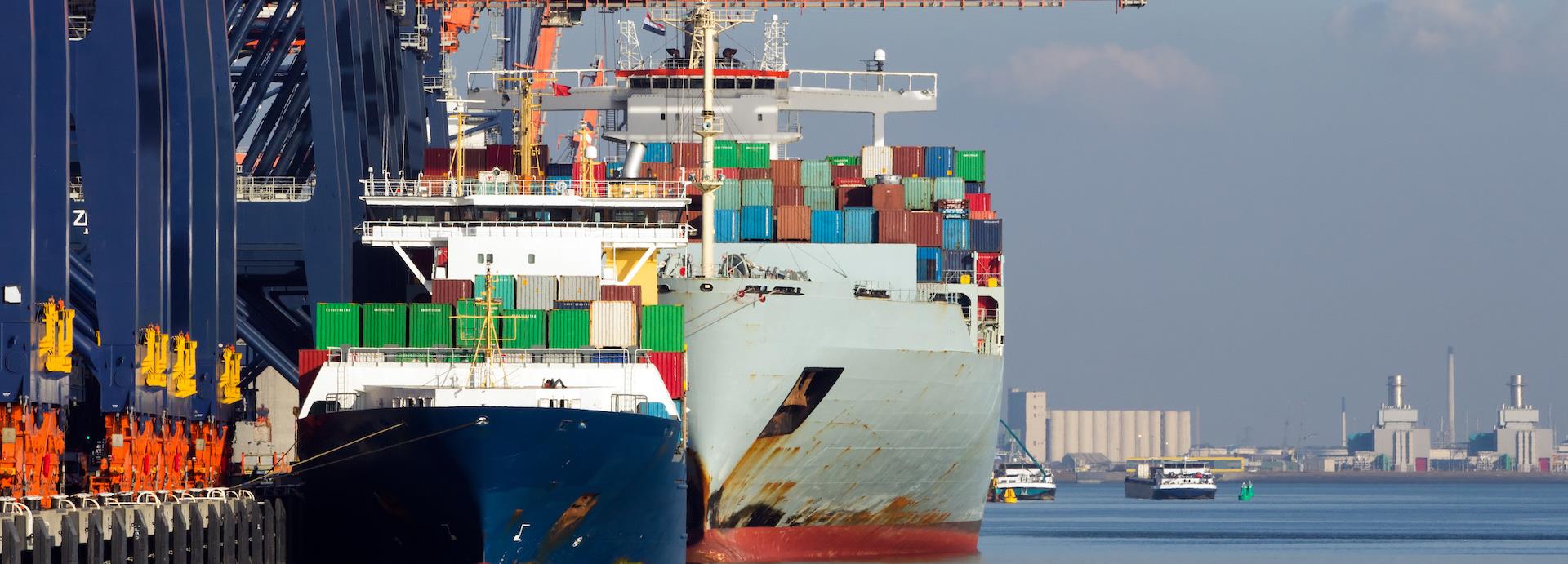

The need for the shipping industry to reduce overall emissions is clear, but viable solutions are still in development. Can a sector-wide tax help push R&D forward?
With commercial shipping estimated to account for between 2-3% of annual global CO2 emissions, there is a strong impetus on the industry to address its impact on the global climate crisis. But the availability of viable and scalable fuel alternatives remains some years off. So what ways are there of incentivising the industry, which carries about 90% of global trade, to go green?
Encouraging R&D
The International Chamber of Shipping (ICS) has proposed that shipping companies pay a mandatory contribution of USD 2 per tonne of marine fuel in order to create a USD 5bn fund for research into zero-emissions vessels (ZEVs) over 10 years.
ICS, which represents 80% of the global merchant fleet, says the resulting fund could then be used to catalyse research and development of commercially viable ZEVs by the 2030s.
The organisation believes that this would help the sector meet the ambitious International Maritime Organization (IMO) targets, which are aiming for an absolute reduction in total greenhouse gas emissions from the maritime sector of at least 50% by 2050, regardless of trade growth. Both IMO and ICS predict full decarbonisation to follow shortly afterwards.
However, meeting this goal will require up to a 90% improvement in carbon efficiency, which is incompatible with continued long-term use of fossil fuels in commercial shipping, according to ICS and others in the industry.
This is because hitting the IMO’s emission goals requires new technologies and propulsion systems, such as green hydrogen and ammonia, batteries, fuel cells, and synthetic fuels produced from renewables. At the moment, these technologies do not exist in a scale compatible with transoceanic shipping.
To address this issue, the ICS proposes establishing a non-governmental R&D organisation, the International Maritime Research and Development Board (IMRB), which would be overseen by the IMO. The organisation believes this board could be in place by 2023 via amendments to the existing IMO Convention for the Prevention of Pollution from Ships.
“Everyone’s agreed that if we’re realistically going to meet the 2050 target, then the first zero-carbon ships have to start appearing in the 2030s,” says Simon Bennett, deputy secretary general of the ICS.
An alternative proposal is imposing a market-based measure. The European Commission and Parliament are moving forward with plans to include shipping in the EU Emissions Trading System (ETS) as part of the European Green Deal.
Inclusion of shipping in the ETS, under which polluting industries can purchase and sell emissions permits, is necessary because international efforts to tackle maritime emissions have been too slow, advocates of the proposals argue.
Environmental NGO Transport & Environment claim that the proposals would also address what it claims is a USD 24bn per annum fossil fuel subsidy for the industry.
Such proposals were welcomed by the European Community Shipowners’ Association (ECSA). In December, ECSA Secretary-General Martin Dorsman said that this move would allow the European sector to show that world shipping could be “highly-competitive while moving towards zero emission.”
A need for incentives?
However, both the ICS and ECSA think regulations to address greenhouse gas emissions must be set at the global level by the IMO. They argue that regional regulation could lead to distortion of the level playing field and undermine the progress already made by the worldwide shipping regulator.
In addition, given that the required decarbonisation technologies aren’t yet available at scale, the ICS doubts the efficacy of such a move in the absence of a zero-carbon alternative that ship owners can adopt right now.
While liquefied natural gas (LNG) and biofuel could form part of an interim solution, backed by renewables such as solar and wind, the ultimate goal of zero emissions can only be met with environmentally sustainable and economically viable zero-carbon fuels, according to the ICS.
“I think if you try to apply a carbon tax today, I don’t think it would achieve any additional effect on top of the technical and operational improvements that the industry is already delivering,” says Bennett.
Indeed, the cost of fuel itself is enough of an incentive for ship owners to decarbonise, he adds.
“Notwithstanding recent dramatic events with oil prices and so forth, generally speaking, fuel is by far the ship owner’s greatest cost. A ship owner would argue that fuel is so expensive anyway, they already have every incentive they need to improve their fuel efficiency,” Bennett says.
A collaborative effort
What all bodies seem to agree on is that a fully collaborative effort is required between all stakeholders.
“Collaboration is going to be key. No single stakeholder is going to do this alone,” says Bennett. “And the scale of the challenge is so staggering if you step back and think about it, there’s a danger that you get frozen by the enormity of it.”
This sentiment has been echoed elsewhere in the sector. While the European Sea Ports Organisation (ESPO) welcomes the European Green Deal to becomes the world’s first zero net emission area by 2050, it stressed that the greening of shipping needs co-operation between shipping lines and ports in order to match the supply and demand of clean fuels.
However, reducing the impact of shipping on climate change could depend on more than just technical practicalities.
“Ultimately, it will really come down to political will. I think with this growing feeling, without sounding all dramatic, people are talking in terms of there being a climate emergency today,” says Bennett. “So that requires a special response.”
Did you like this? Subscribe to Insights updates!
Once every six weeks, you will get the top picks – the latest and the greatest pieces – from this Insights channel by email.

